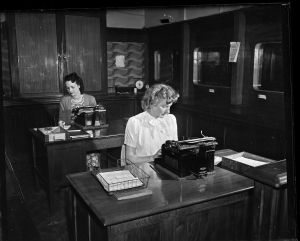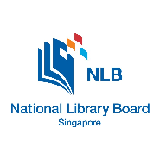Blog
Unless otherwise stated, content is shared under CC-BY-NC Licence
Report to DPC Council September 2021
The DPC Representative Council receives a report every three months that describes all our major activities in the previous three months, and previews work in the coming three months. This report is structured around the 7 objectives of the DPC's Strategic Plan:
- Advocacy
- Community Engagement
- Workforce Development
- Capacity Building
- Good Practice and Standards
- Management and Governance
- Scaled to the Global Challenge
Reports for each area are scrutinized by a Sub-Committee of the Board before they reach the Council where they are a prompt for discussion and a record of progress. These reports, and the scrutiny that they undergo meet two requirements of the DPC’s values: that we are ‘transparent in all our dealings’ and that we ‘respond to the needs of members in the delivery of services’.
Providing computational access to the Polytechnic Magazine (1879 to 1960)
Jacob Bickford is a Web Archiving Assistant at The National Archives. He recently completed the Postgraduate Certificate in Applied Data Science at Birkbeck with support from the DPC Career Development Fund, which is funded by DPC Supporters.
At the end of August, I completed the Postgraduate Certificate in Applied Data Science at Birkbeck, University of London. The course came out of the Computing for Cultural Heritage program, developed by the British Library, The National Archives and Birkbeck. It is an intensive course designed to provide applied programming and data science skills to graduates who do not have formal qualifications in computer science.
Adapting to abrdn – Towards a Sustainable, Open Source response to Digital Preservation
Karyn Williamson is Company Archivist for abrdn.
The only thing certain about working for a ftse 100 company is that change is inevitable, and this is certainly true of abrdn. Since Standard Life Aberdeen was formed, the company has transformed from a historic pensions and life insurance business to a rebranded futuristic fully-fledged investment company.
As the company worked its way through this transformation, the digital futurist objectives of the company meant that the digital preservation aims of the archive became more prevalent and the previous approach of ‘store it all on the archive server and we’ll get to it when we can’ was no longer satisfactory. In addition, abrdn has been very vocal about its commitment to corporate sustainability. With an external pledge from the company to cut carbon emissions in half by 50% by 2025, and a proven track record in responsible ESG investing since the 1990’s, abrdn also encourage every staff member to track their own impact on the environment via the pawprints app[1]. With the thread of corporate responsibility and sustainability running through everything the company does, the archive was keen to continue this approach throughout our digital preservation process. With confirmation that IT support would be provided as needed, the stage was set to begin work on a sustainable digital preservation solution.
The first decision made was to manage the preservation of our digital records in house. This way, we alone were responsible for the environmental impact that our digital solution and storage had on a wider scale. This in turn would allow the archive to put plans in place to measure and address this impact as part of our forward planning, making sure the archive functioned within the aims and objectives of abrdn while also being environmentally sustainable.
RIMPA - Enhancing the Profile of Records and Information Management
Anne Cornish MRIM is General Manager of the Records and Information Management Professionals Australasia.
RIMPA is a peak industry body for records and information managers in Australia. Some of you may be thinking…either “what exactly is that?” or “that doesn’t sound sexy!”
Records and records managers are essential to the way businesses conduct their operations; from the sole owner of the local newsagency through to government departments and large global companies. However, as with our digital preservation colleagues, records managers often receive very little exposure or recognition.
Organisations are quick to engage an accountant to manage their finances and an IT guru to manage their operating systems or an engineer to design a brand-new road. But the value of an organisation’s information assets can be overlooked or could be done by anyone.
Organisations provide accountants with the records they need to pay and collect monies; the IT guru refers to manuals and configuration documents in order to maintain the systems and the engineer uses plans to understand where the pipelines are when building roads. All of these functions rely on effective records management to realise the value of information assets.
Remembering the Pandemic: Archiving the Present for Future Research
Oya Y. Rieger is Senior Strategist for Ithaka S+R in the USA
Since it began almost 20 months ago, the pandemic has affected nearly every aspect of our lives. Researchers from all around the world have been mobilized to help understand and combat COVID-19 and communicate public health messages about it to a range of audiences. Critical information about COVID-19 has been flowing through various channels, including social media, news outlets, journals, and preprint servers. Early on, many cultural heritage organizations engaged in initiatives to participate in the curation and archiving of a diverse range of information. Given the ephemeral nature of digital information, preservation is not only a matter of considering the access requirements of tomorrow’s users but also taking into consideration the needs of individuals who are currently studying various scientific, sociological, political, and cultural aspects of the pandemic. These archiving efforts will not only help to capture a significant moment in our history but may also contribute to the prevention or management of future outbreaks.
Reporting on RDMF21: Data Stewardship in Research Institutions
Fatima Darries is Deputy Director Cataloguing Division at the University of South Africa (UNISA). She attended RDMF21 with support from the DPC’s Career Development Fund, which is funded by DPC Supporters.
I attended the RDMF21 virtual workshop on Zoom on 12 and 13 July 2021. The workshop, entitled Data Stewardship in Research Institutions, was hosted by the Digital Curation Centre (DCC).
The two, half day workshops focused on institutional data stewardship roles, and how national-level communities of practice can help institutions coordinate them with the theme coordinating support for research data stewardship for generic and disciplinary roles.
I compiled this post from personal notes, collaborative notes, tweets and presenters’ slide decks.
Reflections on Operation Night Watch: the largest research and conservation project of one of Rembrandt’s finest works
Annette le Roux is Collection Developer Archival Resources at the University of South Africa (UNISA). She attended IS&T Archiving 2021 with support from the DPC’s Career Development Fund, which is funded by DPC Supporters.
Annette le Roux is the Collection Developer Archival Resources at the Unisa Library, University of South Africa, with an International Masters in Digital Library Learning (DILL) obtained in 2009. She also completed the Society of American Archivists certificate: Digital Archival Specialist (DAS) in 2019 and the Novice to Know-How: Digital Preservation Skills for Beginners in January 2021.
It was such a privilege to attend the IS&T Archiving 2021 Online conference as a grant recipient of the DPC Career Development Fund. The reason for applying for this grant was worded in my application, mentioning:
The University of South Africa (Unisa), the largest open distance learning institution in Africa, hosts the Unisa Library Digital Collections, including the Unisa Library Archives Online. The urgent digitisation drive of the Unisa Library is closely linked to the following issues:
-
Most archival collections located in the Unisa Library are unique and irreplaceable.
-
Digitisation limits the physical handling of the original records.
-
Digitisation provides access to Unisa’s researchers, as well as to a broad, international user-base.
A focus on… the emerging role of ‘Data Steward’ in Ireland
Dr Deborah Thorpe is Education and Outreach Manager as the Digital Repository of Ireland. This blog is republished from the DRI blog on 4th August 2021.
In DRI’s Repository, you can discover collections of data that range from the Cork LGBT Archive, to the Jacob's Biscuit Factory Archive, to the Irish Women at Work Oral History Project. The Repository preserves, manages and provides sustained access to this social and cultural content for the long-term future. The DRI team also collaborate with our members to showcase this digital content, working on promoting it and encouraging others to cite and reuse it. One element of our work that can cause confusion, though, is the difference between ownership and stewardship of data.
The data that you find in the Repository has a variety of data owners. These are the organisations that are responsible for the data and primarily comprise DRI’s members. As is outlined in the European Commission’s own data governance and data policy, they are the ‘business owners of data assets’, and are accountable for the quality of the assets [1]. DRI is not the data owner for the majority of the data in the Repository, with a number of notable exceptions including our own Publications and the outputs of some DRI-led research projects. Indeed, in order to ingest digital objects into the DRI Repository, an organisation must hold the rights to the data, or must show that it has the necessary permissions to publish the data (see DRI’s Collection Policy). Though DRI supports the open sharing and reuse of data where possible, depositors control the rights statements and licences attached to their digital assets. Digital preservation with DRI does not compromise the position of the data owner: the original creators retain ownership, copyright, and associated intellectual property rights of all digital objects ingested into DRI.
Preserving Our Digital Heritage: National Library Board Singapore
This post was written by the team at the National Library Board, Singapore
The National Library Board, Singapore (NLB) is the official custodian of Singapore's published and documentary heritage, archival materials of national and historical significance, government records and broadcast archives. As part of NLB’s Libraries and Archives Blueprint 2025, which outlines our evolving roles and priorities over the next five years, we are committed to an ongoing effort to collect, preserve, and make accessible digital content on Singapore.
Digital Loans and Virtual Visitors
Carrie Marks is a Digitisation Technician for Still Media at Imperial War Museums (IWM). She attended DCDC 2021 with support from the DPC’s Career Development Fund, which is funded by DPC Supporters.
Hello Everyone! My name is Carrie and I am the Digitisation Technician for Still Media on the Preservation team at Imperial War Museums. I’m currently working on the Digital Futures project which involves digitising images that are at risk of deterioration over the next 5 years.
I wanted to attend DCDC21 as this year’s theme of ‘Collecting in Crisis’ runs parallel with IWM’s focus on collecting during conflict. I wanted to understand how the content I am creating on the Digital Futures project can be used to bring communities together online, develop new opportunities for researchers as well as open up collections for audiences unable to attend museums in person.
The session ‘Digital Loans using Augmented Reality – Would you?’ really caught my attention as I am passionate about preserving collections and I want to find a way to bring the physicality of photographic ephemera to digital users.




















































































































































